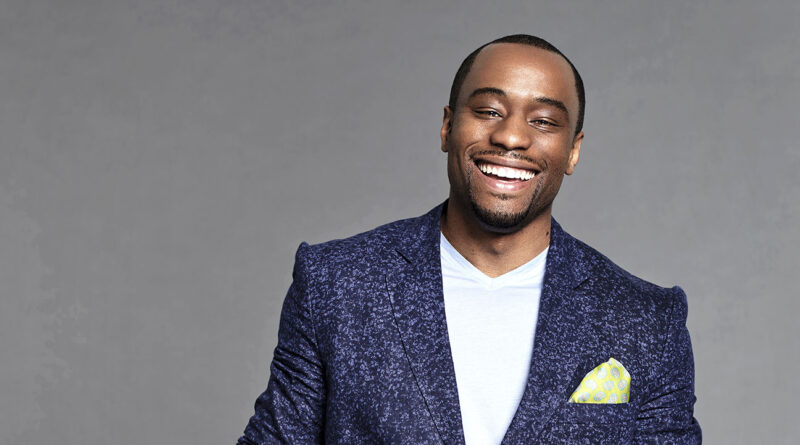Marc Lamont Hill Discusses His Book, Social Media And Technology at Entrepreneurs Summit
The second day of the Black Enterprise Entrepreneurs Summit began with a bang as a political commentator and entrepreneur Marc Lamont Hill discussed the motivation behind his new book, Seen and Unseen, Technology, Social Media and the Fight for Racial Justice.
“We were trying to figure out the moment George Floyd was killed,” Hill said.
“We were home, if you had a job, you were working from home and we were trying to figure out why the streets of Philadelphia, Minnesota, Atlanta and New York were on fire protesting this murder and I say that because Black death happens every day. Our sons, daughters, mothers and fathers are killed every single day. Sometimes by police, sometimes by vigilantes and sometimes by each other. But we die every day and every day does not spark the same outrage so why this moment?”
Hill was joined in the discussion by BLACK ENTERPRISE Senior Vice President and Chief Content Officer Derek Dingle. In addition to Hill’s book, the two men also discussed how Black people have always used the media to show the world what is being done to them. He cited examples such as Bloody Sunday on the Edmund Pettis Bridge and Emmitt Till‘s mother allowing Jet Magazine to photograph her son’s open casket after his death.
“She said I want the world to know what they did to my boy,” Hill said to the audience. “So the social media of the time, Jet Magazine, when that picture is put on the cover it has an impact that leads to the Montgomery Bus Boycott, and it’s not just the image it’s how the image is used. That’s a responsibility all of us have as business owners, activists and citizens. As Jesse Jackson told me, text without context is pretext, we need the context and so the context here is to show what the world is doing to us and Black folk have always been strategic about how we use technology and media to tell our story.”
The two men also touched on how Black business owners and entrepreneurs can sustain Black movements through time. During the Black Lives Matter movement, businesses across the country made equity pledges, promising to hire and promote Black men and women into management positions. However, two years later that talk has died down and the actual numbers are much lower than what was promised.
Hill discussed the topic using the bookstore he owns in Philadelphia, Uncle Bobby’s Coffee & Books.
“I think the first thing we have to do is invest in us,” Hill told the audience. “I own a black bookstore and I sell books at the best price that I can, but I promise you right now if you go to Amazon you’ll find my book at a cheaper price. But my store gives you some things that Amazon doesn’t.
“We have to begin with a fundamental commitment to us that’s not driven by economic logic. What I’m able to do at Uncle Bobby’s does not just sell books & coffee, we also give everybody a $15 minimum wage, even high school kids and most of our vendors are black and the farmers who produce our beans are from Haiti. Where you spend your money is a political act.”
Hill noted the hundreds of businesses who put out racial equity statements but wondered what exactly did those companies and individuals do?
“Everybody said they’re going to invest in diversity, equity and inclusion but what does that mean two years later? Did those companies hire a Black person or did they create internal mechanisms?” Hill asked. “Once the corporation makes a statement we have to keep our eye on them. It’s not enough for them to say ‘Ok we’re going to hire some black people,’ no, what are the outside mechanisms installed to ensure that there’s always diversity?”
Hill added that in order to move forward, Black people need long-term commitments to equity and diversity and we need to apply pressure and penalty when they don’t give it.
“Don’t be excited that your favorite influencer is on social media bragging about this company, that might make you feel good by proxy, but the deeper thing is how much have they invested in our schools, in our community gardens, in scholarships, because they speak out against the things they’re against.
“Now we need them to speak out against people in Buffalo killed in a supermarket, we need them to speak out against the assault on our education system and they can’t be short-term statements, they have to be long-term initiatives.”

